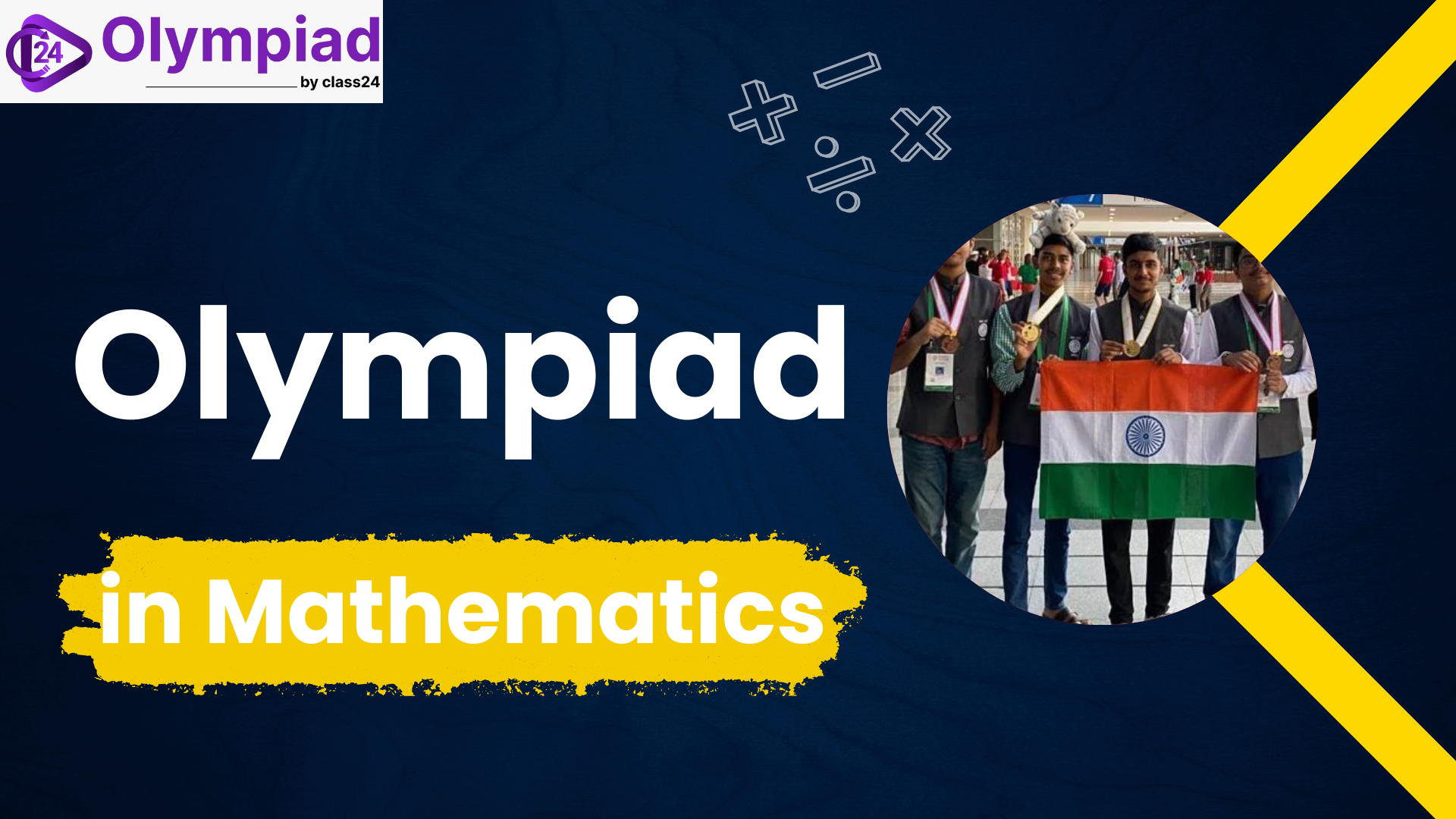
Students from every age group and ability can compete in Mathematics Olympiads at the school, regional, national, and even international levels. Training for these events requires hard work, persistence, and acquiring better knowledge of important areas such as algebra, geometry, and number theory. With this page, you or your child will find helpful information about various Mathematics Olympiads, how to prepare, Maths Olympiad syllabus, the benefits involved, and stories of those who found success in mathematics.
Mathematics Olympiads are held for students at various skill levels and ages. The International Maths Olympiad (IMO) and similar international competitions, as well as contests inside each country and regional or school-based Olympiads, are all types of math competitions. All Olympiad events use different methods, determine which students can qualify, and focus on different areas, though all aim to increase problem-solving and mathematics skills. The following section presents the main Math Olympiads.
| Type | Description | Target Group |
|---|---|---|
| International Olympiads | Highest-level global competitions bring together top students worldwide. | High school students |
| National Olympiads | Country-level contests to select representatives for international competitions. | School students |
| Regional Olympiads | Competitions at the state or regional level promote mathematical skills among local students. | Middle and high school |
| School-level Olympiads | Organized within schools or districts to encourage early interest and participation in math. | Elementary and middle school students |
| Specialized/Junior Olympiads | Focused competitions for younger students or specific math topics to build foundational skills. | Primary and middle school |
Mathematics Olympiads are designed to test participants’ knowledge and creative approach to solving Maths Olympiad questions to the test. Normally, the events take just a day or two, and they give students a chance to work on different problems from algebra, geometry, number theory, and combinatorics. The International Maths Olympiad (IMO) is held through two exam periods, each lasting 4.5 hours and holding three problems in each session. In mathematics problems, you are assessed on how well you can solve them using ideas, logic, and stylish proofs. Medals are awarded to those who get the highest scores for accuracy and clarity in the performance. Most Olympiads prize personal performance, yet some such events for some nations or regions can also have group rounds that help students unite.
When students participate in a Mathematics Olympiad, they get much more than just an opportunity to compete. It helps people use logic and reasoning skills, address problems, and learn more about Maths Olympiad questions. The process of preparing for Olympiads teaches students to be patient, logical, and manage their time well, both at school and elsewhere. Competing successfully can result in scholarships, becoming an instant leader, and receiving outstanding opportunities in science, technology, engineering, or mathematics. Additionally, taking on tough problems stimulates creativity and helps you grow in confidence, believing that learning can last your entire life.
| Benefit | Description |
|---|---|
| Critical Thinking & Problem Solving | Develops the ability to analyze complex problems and find innovative solutions. |
| Advanced Mathematical Knowledge | Exposure to topics beyond the regular school syllabus deepens understanding. |
| Academic Recognition | Olympiad success can lead to scholarships and honors from educational institutions. |
| Perseverance & Discipline | Rigorous preparation cultivates focus, persistence, and effective time management. |
| Career Opportunities | Builds a strong foundation for careers in mathematics, engineering, computer science, and research. |
| Confidence & Creativity | Boosts self-confidence and encourages creative approaches to problem-solving. |
To achieve success in a Mathematics Olympiad, it is essential to do proper Maths Olympiad preparation. You have to understand the Maths Olympiad syllabus, important concepts, practice many types of problems, and study techniques to solve them. Gaining access to quality notes, looking at past Olympiad sections, and attending coaching classes can improve your knowledge. Working on problems often, discussing them with classmates, and taking practice tests on a schedule boosts your confidence and helps you answer problems more efficiently. Consistently training, being patient, and being curious are what help people become successful in these events.
Getting involved in Mathematics Olympiads is not as difficult as it seems. Generally, the eligibility rules say that students should be from middle school through high school. Identify the Olympiads nearby that you can participate in and check how to register and when the registration will take place. To encourage students, schools regularly organize competitions within the school or lead them to participate in local Olympiad groups. Preparing for the exams involves knowing Maths Olympiad syllabus, using study guides, joining a training program or exploring online educational forums. Keep practicing and take advice from other people, as this will help you do well in these competitions.
| Step | Details | Tips & Resources |
|---|---|---|
| Eligibility | Typically for students from middle school to high school (varies by Olympiad). | Check official Olympiad websites for the criteria. |
| Registration | Registration often occurs through schools or local math organizations. | Keep track of deadlines; early registration helps. |
| Finding Olympiads | Identify Olympiads at the school, regional, national, and international levels. | Visit the national Olympiad portals or school notice boards. |
| Study Materials | Use recommended books, past papers, and online courses. | “Art of Problem Solving” books, Brilliant.org, AoPS online courses. |
| Coaching & Mentoring | Join coaching classes or study groups for guided Maths Olympiad preparation. | Local math clubs, online coaching platforms like AoPS. |
| Practice & Mock Tests | Regular practice with timed mock exams to build confidence and improve speed. | Solve previous years’ problems, and simulate exam conditions. |
| Stay Consistent | Maintain a regular study schedule with breaks to avoid burnout. | Set weekly goals, track progress. |
Mathematics Olympiads give you a chance to improve your skills, expand your math knowledge, and acquire abilities that you will use outside of school. Joining any such competitions, whether school or international, helps you become more persistent, imaginative, and smart. With regular Maths Olympiad preparation, appropriate tools, and interest in solving problems, you can reach your potential and pursue STEM opportunities in life. The blog offers useful information with guides, tips, and achievements to help you in the Olympiad.
The Mathematics Olympiad involves students in solving tough problems that are not normally found in regular school classes. This encourages young people to use their minds to analyze, reason, and solve different problems. The International Mathematical Olympiad (IMO) started in 1959, and over the years, these competitions have expanded to welcome students from 100 countries worldwide. By participating in a Mathematics Olympiad, students gain opportunities for academic achievement, financial rewards, and attention from others across the world.




Leave a Comment